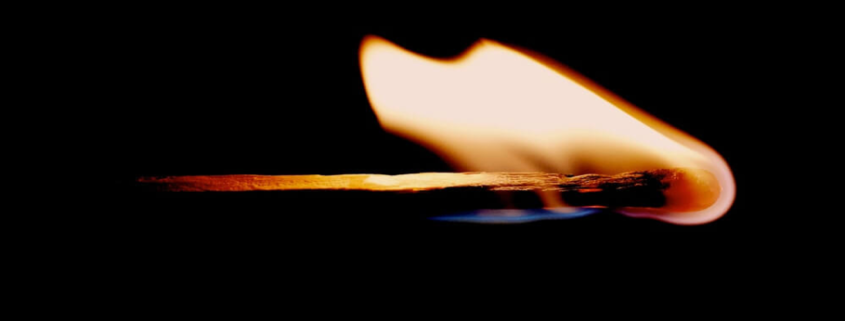What Are the Different Types of Property Damage?
Types of Property Damage
Property damage in short covers damage to physical property (examples: home, vehicles, and personal property). But what exactly do you do when your property has been damaged?
One of the biggest causes of property damage in Colorado has to do with the weather. Anything you might’ve heard about Colorado’s 300 sunny days per year is hyperbole. Colorado is prone to hail storms which cause far more bad than good.
Over the last few years, we’ve also seen a drastic increase in wildfires. 2018’s wildfire season was one of the worst on record, with more than 450 homes being damaged or destroyed. It led to a lot of apartment fire damage in Denver, Aurora, and beyond. Understandably, a lot of residents weren’t sure what to do.
To prepare yourself for the possibility of property damage, you first need to uderstand what it means. On top of that, you also need to know the different types. All of which will be covered in this article.
Property damage
The definition of property damage can be segmented into three types:
- Physical damage to tangible property
- Loss of use of injured tangible property
- Loss of use of uninjured tangible property
Tangible property is as it sounds: it covers anything that is tangible. For instance, physical items and belongings that can be touched or felt.
Physical Damage
This covers belongings and property that has been physically damaged. It’s also the type of damage we see the most.
In short, physical damage can be seen by the naked eye. Good examples include hail smashing through your car’s windshield or a gas leak leading to a fire that guts out your kitchen.
Loss of use
Essentially, ‘loss of use’ is legalese for ‘it doesn’t work anymore.’ Simple as it sounds, property damage law then splits it into two categories.
- Injured = items that don’t work as a result of the accident
- Uninjured = items that stop working but aren’t physically damaged
Examples of both include:
- Injured: An electrical fire damaged the inside of an apartment causing the tenant to have to move elsewhere
- Uninjured: A fire causes the ceiling in an apartment complex to open spilling asbestos all over your items. While the fire may not have physically caused damage to the item the asbestos that touched any items such as blankets and other tangible soft items will be damaged.
Types of property damage
Three of the most common types of property damage in Denver are theft, weather, and fire.
That said, with the increase in wildfires has pushed fire damage to the top of the list.
Fire
In regard to fire damage inside of properties, it doesn’t matter if your property is commercial or residential. Hotels, offices, factories, and homes are covered in the State of Colorado.
Although most fire damage is visible, there are times when it might not be. If you’ve experienced a fire in your home, it’s often wise to call on experts to ensure there are no hidden dangers.
Fires can happen as a result of anything from electrical shortages and cooking to unextinguished cigarette butts and candles. You never know when a fire may start.
Following the fire, make sure you contact your insurance company for any documents that might help your claim.
Wildfires
Despite California being a brutal haven for wildfires, Colorado is the third most wildfire-prone state. 2.9 million of Colorado’s citizens are also living in at-risk areas.
Following the Black Forest Fire in 2013, more than 4,000 residents filed property damage claims. This came to a total of more than $450 million.
Wildfires are no laughing matter, and while there are less than there were in 2002, they are increasing.
Weather
Weather-related property damage can be as simple as shingles on roofs being ripped off. Denver is no stranger to winter storms, which inevitably means hail and strong winds.
Hail insurance claims from Colorado constituted for the second highest amount across the United States. It’s also a problem so widespread that it’s led to roofing scams. These scammers offer the promise of roof repairs. However, these unlicensed contractors could also damage your home further and you may not be able to claim property damages.
Theft
On every level, theft is traumatizing to those who are victim to it. A theft in the home can cause both psychological harm as well as financial losses as a result of damaged property. Seeking out professional legal assistance in the wake of theft can make all the difference. You may be entitled to file a claim if, for example, if locks were broken or windows were smashed.
Water
Water damage is a rampant form of property damage across the Denver Metro area, especially during the winter season when temperatures drop. This type of property damage can be a result of flooding and leaks from any number of things.
The most commonly seen are leaky pipes, an overflowing toilet, and baths or showers that don’t drain properly. Physical damage can occur in the form of cracks and bulges in your home. Any of these can lead to black mold that can form as a result which if left undetected or unresolved can cause physical bodily harm,
Most water damage is not a result of anything you’ve done, therefore, you’re always entitled to make a claim.
What to do next
As soon as you’ve noticed any form of damage, be it physical or a loss of use, you want to call your trusted attorneys at AGG Law Firm. Homeowners, renter’s, and auto insurance policies can be very tricky to navigate. In order to get the maximum compensation for your damaged property call the experienced property damage attorneys at AGG law firm. We will fight to get you the maximum compensation for your damaged property. Contact us today for a free consultation at 720-487-1050.



